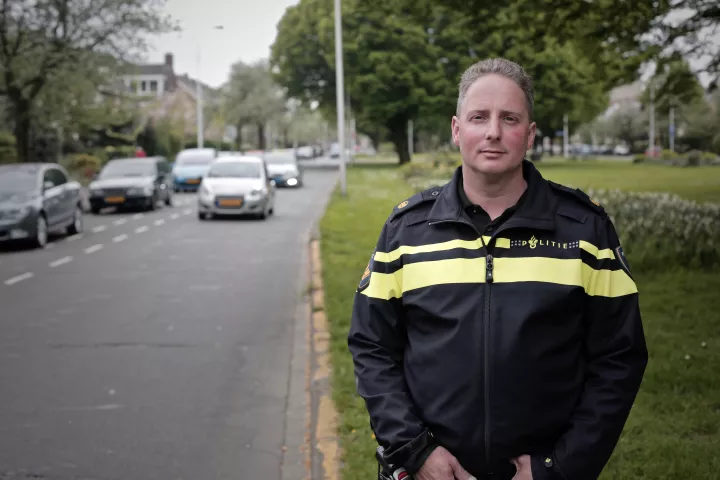Stefan van Dijk is a family police officer, and since this year also a neighborhood police officer. In cases of traffic accidents, he regularly informs the people involved about restorative mediation. “They can give the incident a certain place in their minds, and that’s the main gain.”
“As a family police officer, you’re the link between the investigation team and the ones who were involved in the accident. You are the contact person for victims or relatives of the deceased. When I think that people may feel the need to get in contact with each other, I explain to them how restorative mediation can help them. And that there are several different ways to get in contact.” Participants of restorative mediation can choose to have a face-to-face conversation, but they can also choose to exchange letters or to send messages through the mediator. Experience tells us that especially in case of traffic accidents, people opt to have a face-to-face meeting.
Very quickly
Stefan: “I always mention it early on and see how people react. Often times they still have other things on their mind at that moment, but they will come back to it later: ‘You mentioned … a while back, can you explain it again?’ I also always explain that there will first be an informative meeting with a mediator, and that you’re not locked into it straight away. That they can say at any time: ‘I don’t want this anymore.’ I also often mention your website. ‘Have a look on there to see if maybe it’s something for you.’ Or I tell them about my own experiences with restorative mediation and that afterwards, I get positive reactions from the people involved.
I also always explain that there will first be an informative meeting with a mediator, and that you’re not locked into it straight away.
“I had a case of a deceased boy. His father said very early on that he wanted to get in contact with the causer of the accident to tell him that it’s terrible that the accident happened, but that it was really important to him that the causer would be able to move on with his life. And that they don’t blame him. That was the moment for me to refer to restorative mediation. The people involved can move on, they can give the incident a certain place in their minds, and that’s the main gain.”
Professional guidance
“It’s important as a police officer to take a step back and give way to specialized care. To let go of that control isn’t always easy. When restorative mediation is started, it takes a lot of work off my back. But most importantly: you know that the people involved are getting the right guidance. That’s why I refer both victims and causers of an accident to restorative mediation.”
